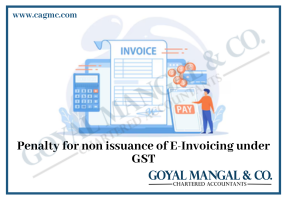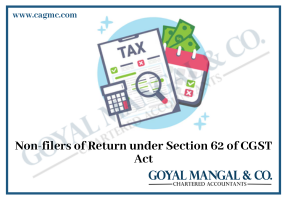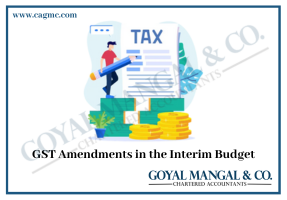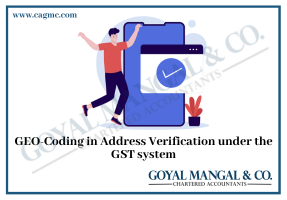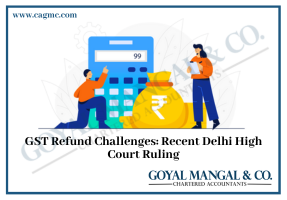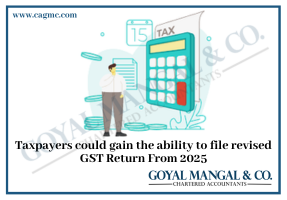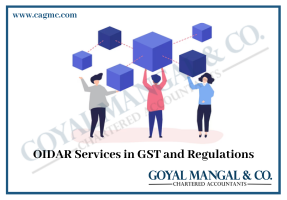
The Goods and Services Tax (GST) implementation brought significant changes to the tax landscape, aiming to streamline and unify the taxation system in various countries. As part of this transformation, the Composition Scheme under GST was set up to alleviate the compliance burden and simplify tax obligations for small businesses. In this article, we delve into the essence of the Composition Scheme under GST, exploring its key features, eligibility criteria, benefits, and compliance requirements. By understanding this scheme’s nuances, small business owners can make informed decisions regarding their tax obligations and leverage its advantages effectively.
| Table of Content |
What is Composition Scheme under GST?
The Composition Scheme under the Goods and Services Tax (GST) is a simplified taxation scheme designed for small businesses. It offers certain relaxations and reduces the compliance burden for eligible taxpayers.
Under the Composition Scheme, eligible businesses can pay GST at a fixed rate on their turnover, instead of the regular GST rates applicable to their specific goods or services. This scheme is available for businesses with a turnover below a certain threshold, as determined by the GST Council.
Features of Composition Scheme under GST
Key features of the Composition Scheme:
- Eligibility: Small businesses, including manufacturers, traders, and restaurants (not serving alcohol), can opt for the Composition Scheme if their annual turnover does not exceed the specified threshold.
- Reduced Tax Rate: The Composition Scheme allows businesses to pay GST at a lower rate than the regular GST rates. The rates are predetermined by the GST Council and vary based on the nature of the business.
- No Input Tax Credit: Businesses registered under the Composition Scheme are not eligible to claim an input tax credit on their purchases. This means they cannot offset the tax paid on inputs against the tax liability on their sales.
- Limited Compliance Requirements: Businesses under the Composition Scheme have simplified compliance requirements compared to regular taxpayers. They need to file quarterly returns instead of monthly returns, reducing the frequency of compliance
- No Interstate Sales: Businesses opting for the Composition Scheme are not allowed to make interstate supplies. They can only make supplies within the same state or union territory.
- Limited Range of Activities: Certain businesses are not eligible for the Composition Scheme, such as service providers (except restaurants), manufacturers of notified goods, and businesses engaged in e-commerce.
Who is eligible for the GST Composition Scheme?
In India, businesses meeting the following criteria are eligible for the GST Composition Scheme:
- Turnover Threshold: The aggregate turnover of the business in the previous financial year should not exceed a specified threshold. The threshold varies based on the type of business:
- Manufacturers of goods (except manufacturers of certain notified goods): Up to INR 1.5 crores
- Suppliers of restaurant services or traders: Up to INR 1.5 crores
- Businesses located in Special Category States: Up to INR 75 lakhs
- Nature of Business: The Composition Scheme is generally available for businesses involved in the supply of goods. However, certain businesses are not eligible for the scheme, including:
- Service providers (except those providing restaurant services)
- Manufacturers of ice cream, pan masala, or tobacco products
- Inter-state suppliers
- Casual taxable persons or non-resident taxable persons
- Businesses engaged in e-commerce activities
- Businesses engaged in supply through an electronic operator
- Manufacturers of certain notified goods
How to apply for the GST Composition Scheme?
To apply for the GST Composition Scheme, businesses need to follow certain steps and procedures. Here are the general steps to apply for the GST Composition Scheme:
- Eligibility Check: Ensure that your business meets the eligibility criteria for the Composition Scheme. The criteria typically include turnover thresholds and restrictions based on the nature of the business.
- GST Registration: If your business is not already registered under GST, you need to register for GST first. Visit the official GST portal or the designated tax authority’s website and complete the GST registration process. Provide the required information, documents, and details of your business.
- Application for Composition Scheme: Once registered under GST, you can apply for the Composition Scheme by following these steps:
- Log in to the GST portal using your registered credentials.
- Go to the “Services” section and select “Registration.”
- Choose the “Application to opt for Composition Levy” option.
- Fill in the required details and information, including turnover details, business type, and other relevant information.
- Apply electronically.
- Verification and Approval: After applying, it will be verified by the tax authorities. They may scrutinize the application and may request additional documents or information if required. Once the verification process is completed, the tax authorities will approve the application.
- Composition Scheme Effective Date: Upon approval, the Composition Scheme will be effective from a specified date. The date may be the beginning of the financial year or the date of application, depending on the rules and regulations of the respective country or region.
- Compliance and Record-Keeping: Once enrolled under the Composition Scheme, businesses need to comply with the associated rules and regulations. This includes filing quarterly returns, maintaining records of turnover, and adhering to the tax rates applicable under the scheme.
Benefits of Composition Scheme under GST
The Composition Scheme under the GST offers several benefits to eligible businesses. Here are some of the key advantages of opting for the Composition Scheme:
- Reduced Compliance Burden: The Composition Scheme significantly reduces the compliance requirements for small businesses. Instead of filing monthly returns, businesses under the scheme only need to file quarterly returns, reducing the frequency of compliance activities. This helps save time, effort, and resources associated with GST compliance.
- Lower Tax Liability: One of the primary benefits of the Composition Scheme is the payment of GST at a lower rate than the regular GST rates. The predetermined fixed rate of GST is usually a percentage of the turnover, which is generally lower than the regular GST rates applicable to specific goods or services. This reduces the overall tax liability of eligible businesses.
- Cash Flow Advantage: Since businesses registered under the Composition Scheme cannot claim an input tax credit on their purchases, they are not required to maintain detailed records of input taxes paid. This simplifies the accounting process and provides a cash flow advantage as businesses do not have to allocate funds for the payment of input taxes.
- Limited Record-Keeping: The Composition Scheme requires less extensive record-keeping compared to regular taxpayers. Businesses are not required to maintain detailed invoices for every transaction, making it easier to maintain records and reducing administrative burdens.
- Easy Compliance for Small Businesses: The Composition Scheme is specifically designed for small businesses with a turnover below the specified threshold. It simplifies the tax compliance process, allowing these businesses to focus on their core operations and growth, rather than dedicating significant resources to GST-related activities.
- Quick Registration Process: Registering for the Composition Scheme is generally a quicker and simpler process compared to regular GST registration. This facilitates easy entry into the tax system for eligible small businesses.
- Competitive Advantage: The Composition Scheme can provide a competitive advantage for small businesses, particularly in price-sensitive markets. The lower tax rates and reduced compliance burden can help businesses offer competitive pricing, attracting customers and increasing market opportunities.
Takeaway
Through the above article, we can say that by opting for the Composition Scheme, small businesses can significantly reduce their tax burden and compliance complexities. The fixed tax rates based on turnover provide certainty and stability, allowing businesses to plan their finances effectively. The reduced compliance requirements, such as quarterly return filing and simplified record-keeping, free up valuable time and resources for entrepreneurs to focus on their core operations.
